Chevrolet Sonic Repair Manual: Recreational Vehicle Towing
Recreational vehicle towing means towing the vehicle behind another vehicle, such as a motor home. The two most common types of recreational vehicle towing are known as dinghy towing and dolly towing. Dinghy towing is towing the vehicle with all four wheels on the ground. Dolly towing is towing the vehicle with two wheels on the ground and two wheels up on a device known as a dolly.
Here are some important things to consider before recreational vehicle towing:
- What is the towing capacity of the towing vehicle? Be sure to read the tow vehicle manufacturer's recommendations.
- What is the distance that will be traveled? Some vehicles have restrictions on how far and how long they can tow.
- Is the proper towing equipment going to be used? See your dealer or trailering professional for additional advice and equipment recommendations.
- Is the vehicle ready to be towed? Just as preparing the vehicle for a long trip, make sure the vehicle is prepared to be towed.
- Dinghy Towing RS Model with Automatic Transmission
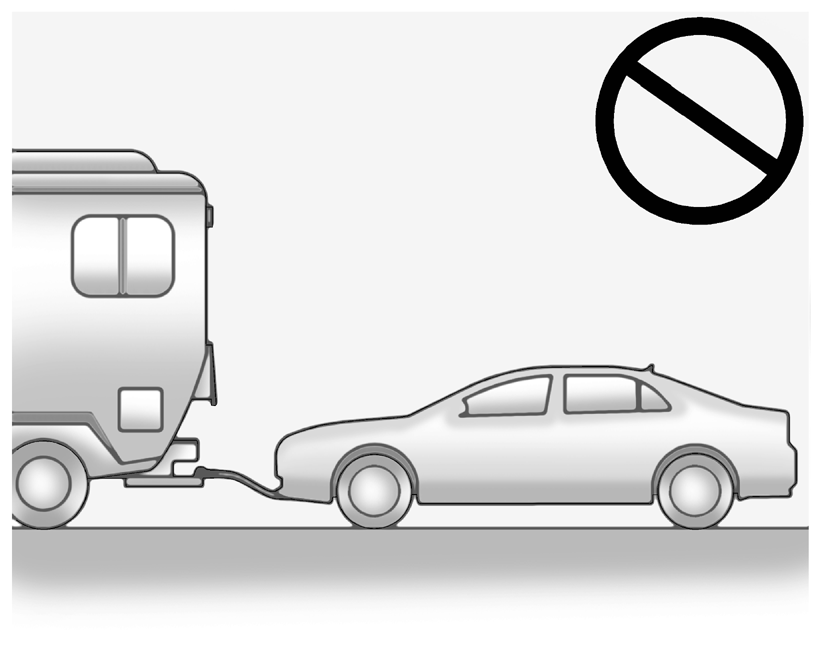
Notice:
If the vehicle is towed with all four wheels on the ground, the drivetrain components could be damaged. The repairs would not be covered by the vehicle warranty. Do not tow the vehicle with all four wheels on the ground.
The vehicle was not designed to be towed with all four wheels on the ground. If the vehicle must be towed, a dolly should be used. See “Dolly Towing” that follows for more information.
- Dinghy Towing All except RS Model with Automatic Transmission
-
When dinghy towing a vehicle with an automatic transmission, the vehicle should be run at the beginning of each day and at each RV fuel stop for about five minutes. This will ensure proper lubrication of transmission components.
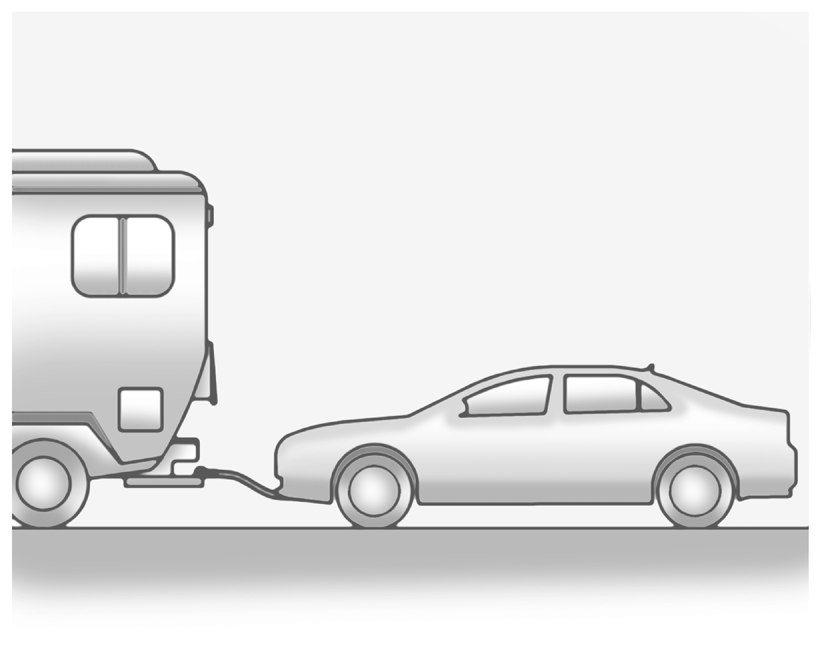
To dinghy tow the vehicle from the front with all four wheels on the ground:
- Position the vehicle to tow and then secure it to the towing vehicle.
- Shift the automatic transmission to P (Park) or a manual transmission into 1 (First) gear and turn the ignition to LOCK/OFF.
- Set the parking brake.
- To prevent the battery from draining while the vehicle is being towed, remove the following fuse from the instrument panel fuse block: (DLIS). See Instrument Panel Fuse Block for more information.
- Turn the ignition to ACC/ACCESSORY.
- Shift the automatic transmission to N (Neutral) or a manual transmission to Neutral.
- Release the parking brake.
Remember to reinstall the DLIS fuse once the destination has been reached.
Notice:
If 105 km/h (65 mph) is exceeded while towing the vehicle, it could be damaged. Never exceed 105 km/h (65 mph) while towing the vehicle.
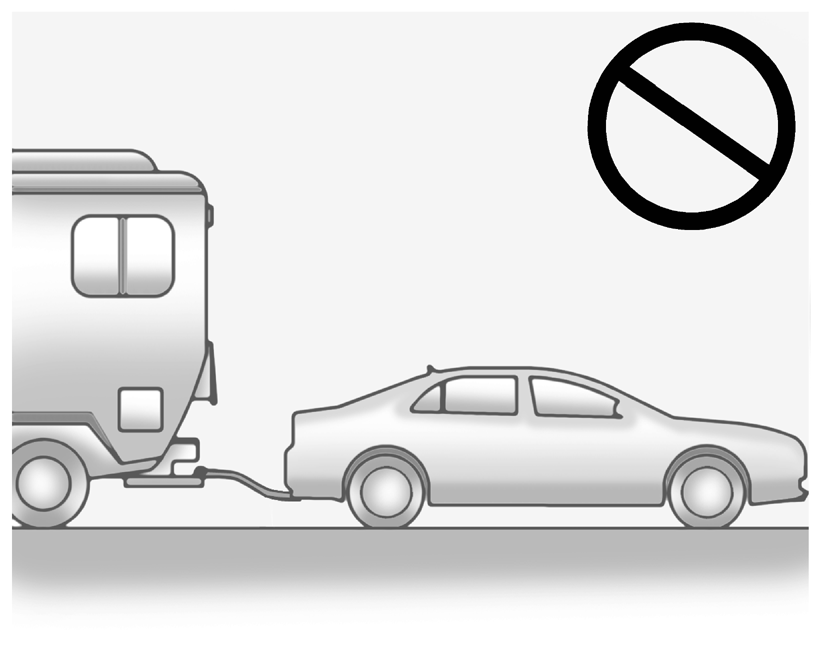
Notice:
Towing the vehicle from the rear could damage it. Also, repairs would not be covered by the vehicle warranty. Never have the vehicle towed from the rear.
- Dolly Towing from the Front
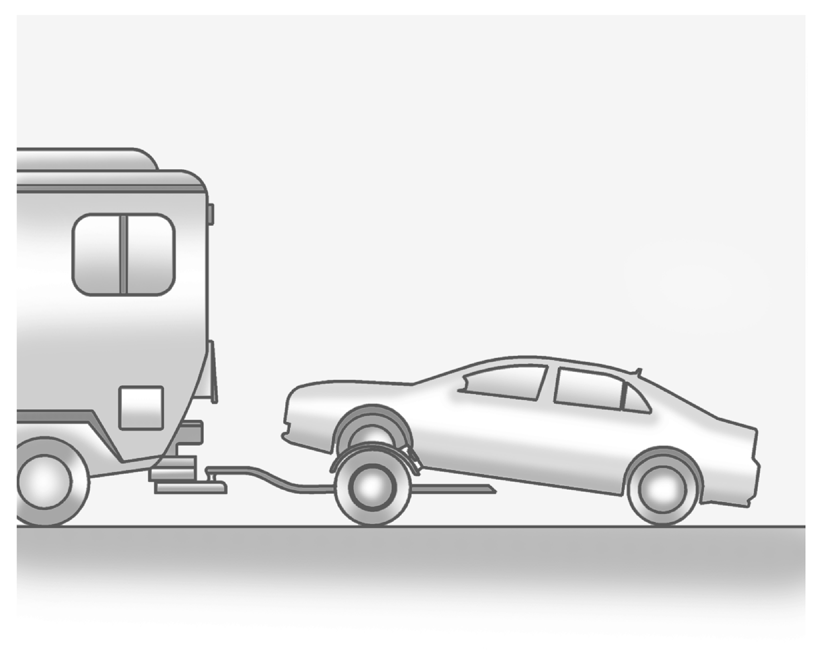
The vehicle can be towed from the front using a dolly. To tow the vehicle using a dolly, follow these steps:
- Attach the dolly to the tow vehicle following the dolly manufacturer's instructions.
- Drive the front wheels onto the dolly.
- Put an automatic transmission in P (Park) or a manual transmission into 1 (First) gear.
- Set the parking brake and remove the key.
- Clamp the steering wheel in a straight-ahead position with a clamping device designed for towing.
- Secure the vehicle to the dolly.
- Release the parking brake.
- Dolly Towing from the Rear
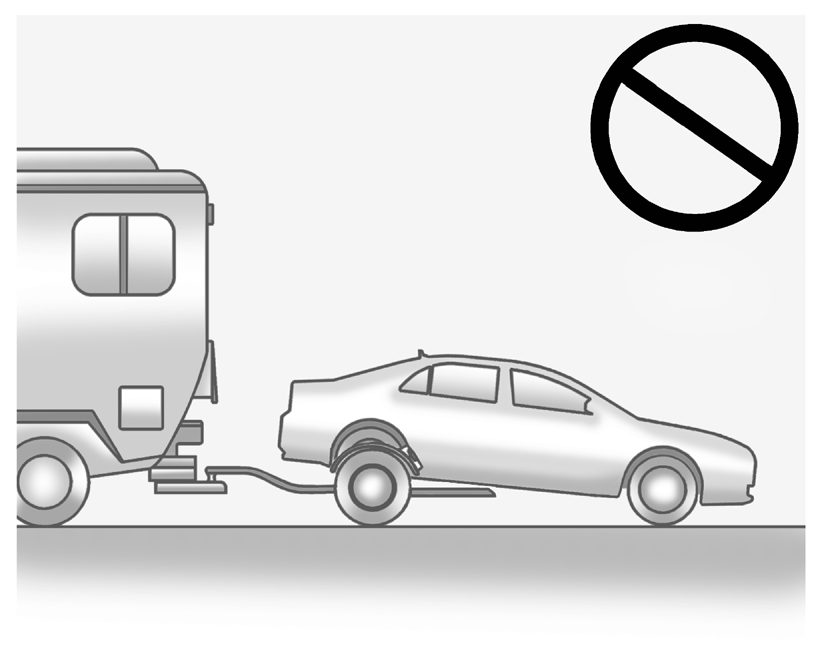
Notice:
Towing the vehicle from the rear with the front wheels on the ground could cause transmission damage. Do not tow the vehicle from the rear with the front wheels on the ground.
 Towing the Vehicle
Towing the Vehicle
Notice: Incorrectly towing a disabled vehicle may cause damage. The
damage would not be covered by the vehicle warranty. Do not lash or hook to
the chassis components including the front and ...
Other materials:
Remote Vehicle Speed Limiting Description and Operation
Certain vehicles equipped with OnStar® now have an additional feature that allows
for remote limiting of the vehicle's speed. This OnStar® feature is called Stolen
Vehicle Slow-Down and is now part of the OnStar® Stolen Vehicle Assistance service.
This feature, when used in conjunction ...
Windshield Outside Moisture Sensor Cover Replacement
Windshield Outside Moisture Sensor Cover Replacement
Callout
Component Name
1
Windshield Outside Moisture Sensor Cover
Procedure
Grasp the cover in the center and gently slide to the right.
...
Engine Front Cover and Oil Pump Assemble
Oil Pump Installation
Note: The oil pump slide spring and pin, as well as the slide
seal and slide seal spring can be ordered as single parts. All other
oil pump components can only be ordered as a replacement kit.
Install the oil pump components in the fo ...
0.0065

